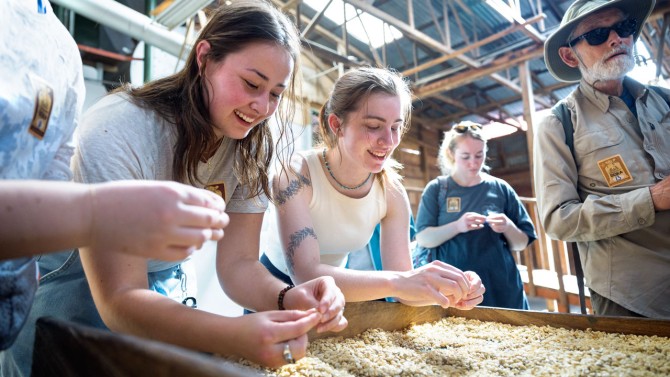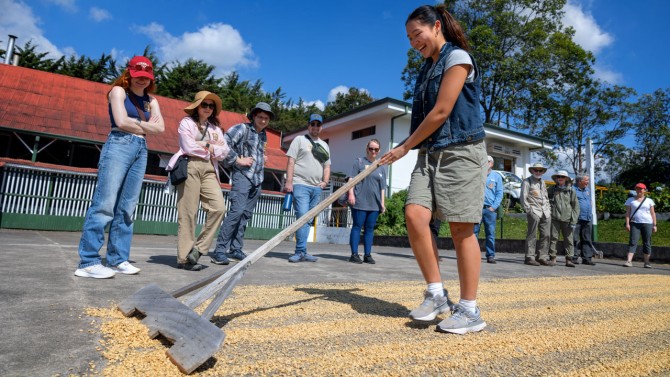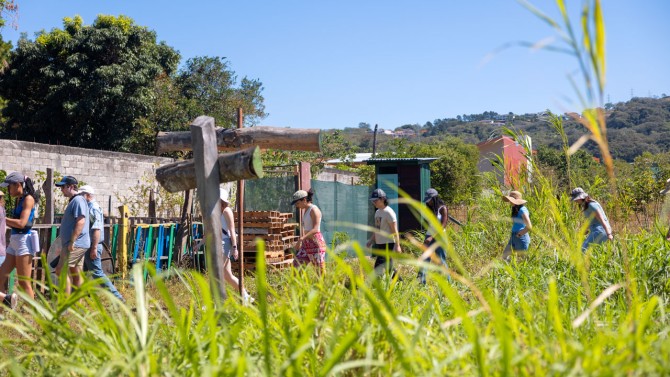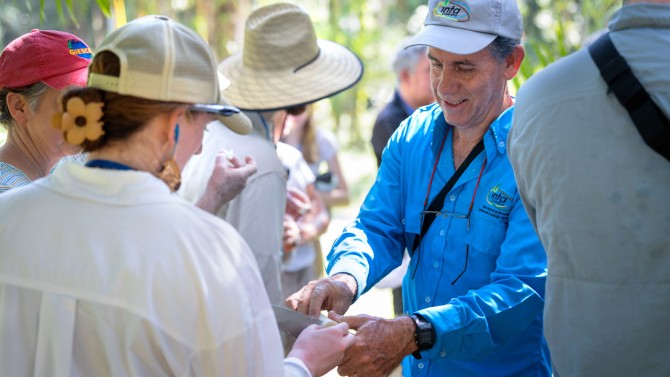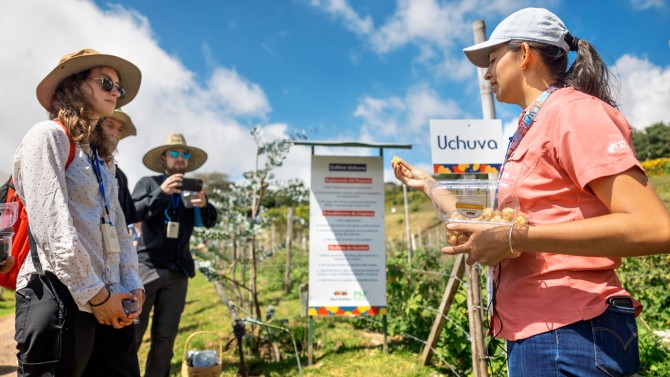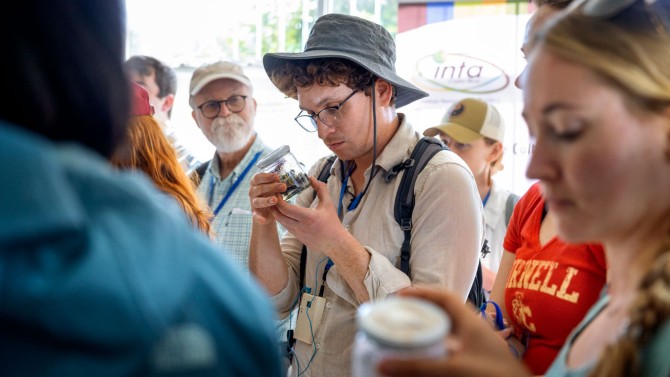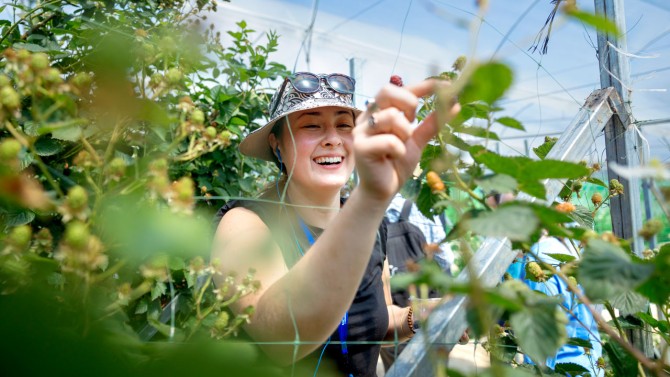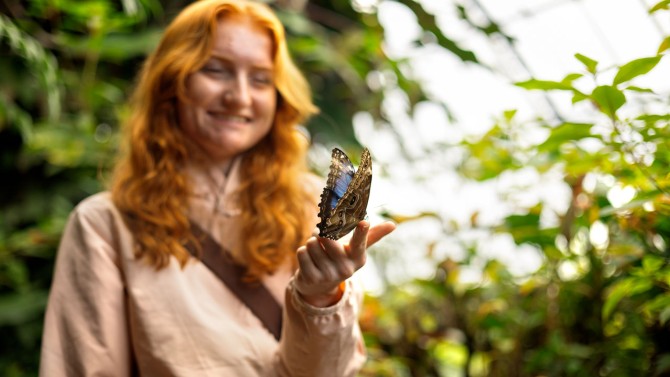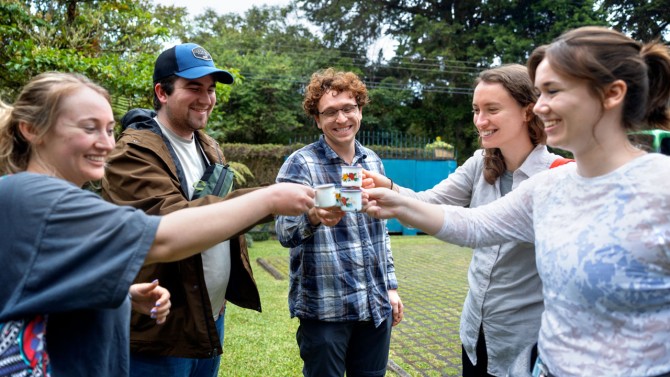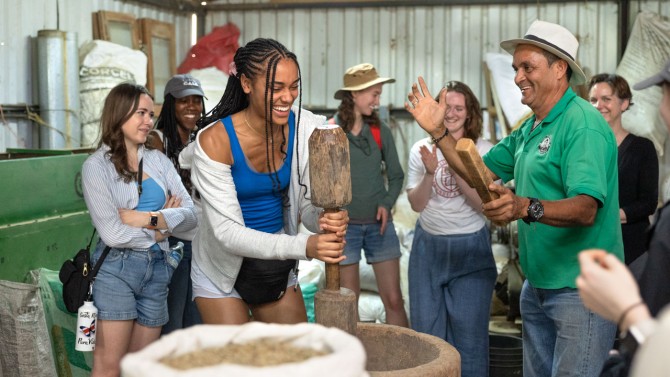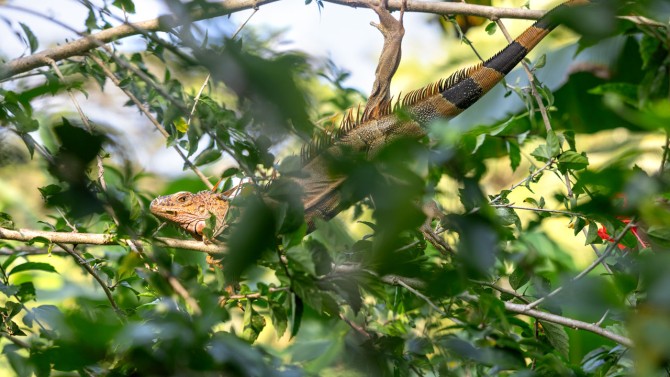Students explore Costa Rica's agriculture and food systems

Zachary Lee ’24 takes a photo of a bird of paradise in Jardín Botánico Lankester in Cartago, Costa Rica.
Photo Essay
Students explore Costa Rica's agriculture and food systems
By Noël Heaney
A group of students who studied global development in Costa Rica helped launch a new model of faculty-led study trips in January. Their 10-day excursion marked one of the first faculty-led international trips hosted by the College of Agriculture and Life Sciences in the post-COVID era.
Spearheaded by the Department of Global Development, the new model features classroom instruction during the semester that prepares the students for a field-based practicum in a foreign country during a school break.
Students taking the 3-credit course “Agriculture, Food Systems and Global Development” traveled throughout Costa Rica to engage with the organizations, labor conditions, trade policies and gender considerations that impact value chains. They focused on visiting farms that produce specialty crops from coffee to cacao, bananas and flowers.
Students are now preparing for a study trip to Ecuador this spring break; students enrolled in the course “Development in Action” in the fall semester will travel to either Cameroon or Malawi in January 2025.
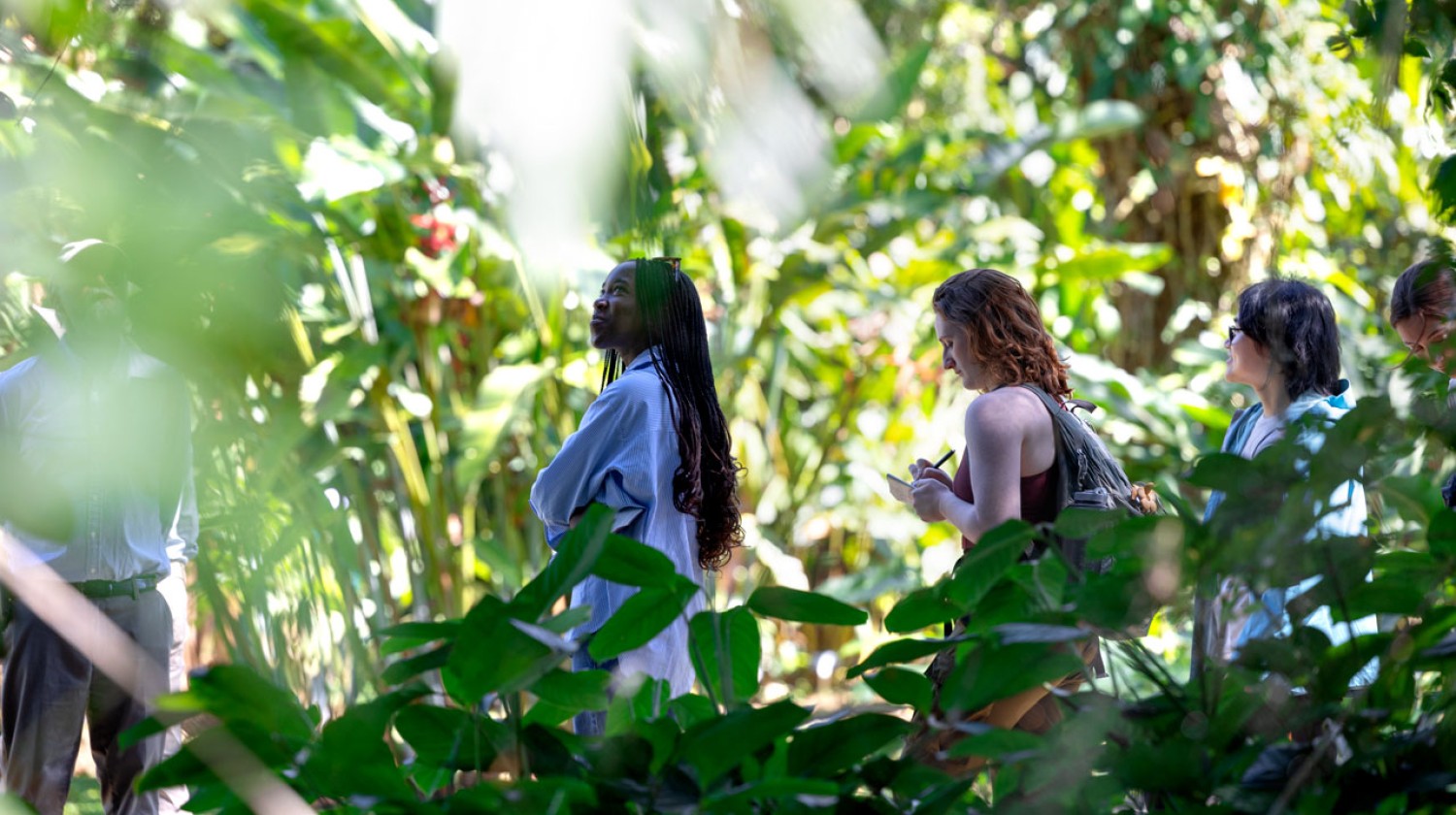
Students take a guided stroll through Jardín Botánico Lankester in Cartago. Operated by the University of Costa Rica, it is a major center for orchid and botanical research in Central America.
For many students, it was the first time they were fully immersed in another culture: touring local farms, engaging in conversations with farmers and university students, and sampling native cuisines. This learning model prepared students to practice skills in a new environment, solve problems with a global mindset, and collaboratively work through complex, multidisciplinary questions, with the goal of empowering students to become global citizens.

Students observe the Poas Volcano on the first day of the trip. The rich volcanic soils and altitude create the perfect climate for growing coffee in the region surrounding San José, the nation’s capital.
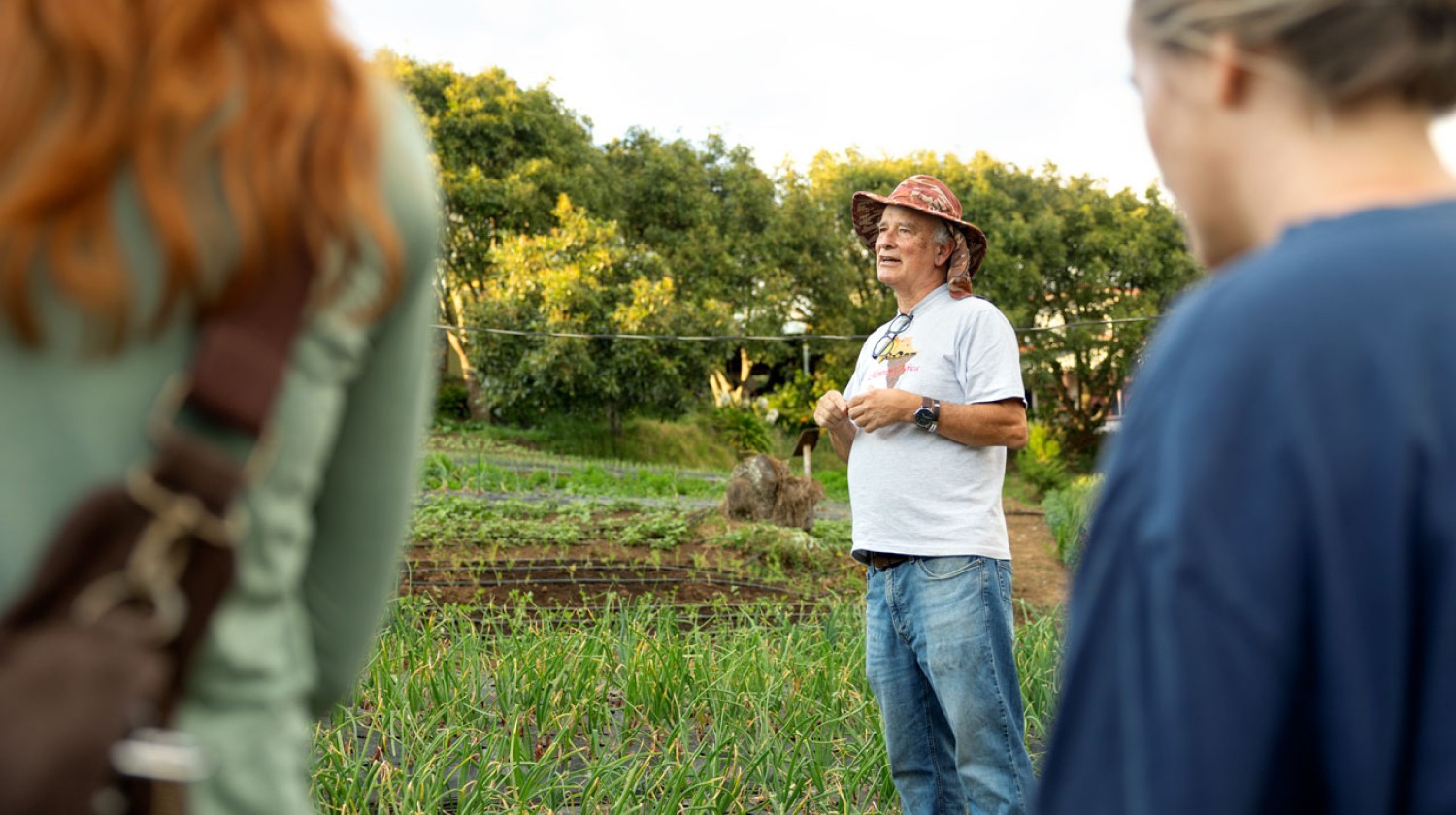
Rodolfo “Tigre” Zamora welcomes students to Rinconcito Organico Irazu, an organic farm in Cartago that he runs with his wife, Hannia Villalobos. The visit left a lasting impression on many of the students; since 2006, the farm has been a model for organic growing and sustainable agriculture in the region.
"It was very touching just seeing how much work and care that they put into their farm. It showed me a different realm of agriculture. In the U.S., we care a lot about monoculture and economic growth and here, in this one tiny little farm, they are integrating everything sustainably and with a passion for global causes, not just making money."
Mira DeGregory ’26
"It’s been cool to see what's motivating the farmers and breeders behind production systems because it's really different than how we often think in the United States. What I've appreciated is that there's a pretty holistic approach to agriculture and what sustainable production looks like here."
Tim Mulderrig, postdoctoral researcher in plant breeding
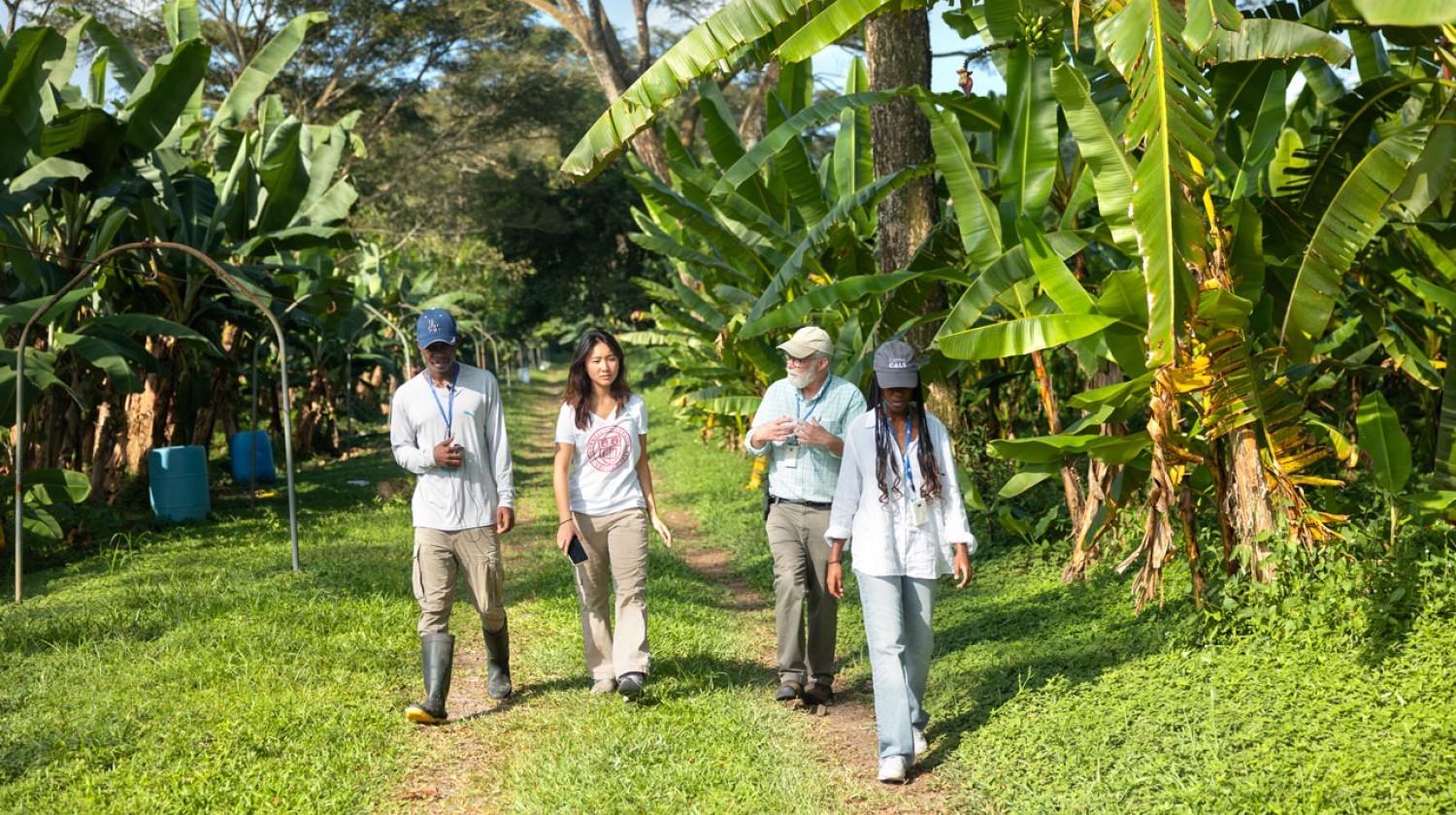
Terry Tucker (middle right), professor of the practice of global development in the College of Agriculture and Life Sciences, chats with Cornell and local EARTH University students after a tour of EARTH University’s banana plantation.
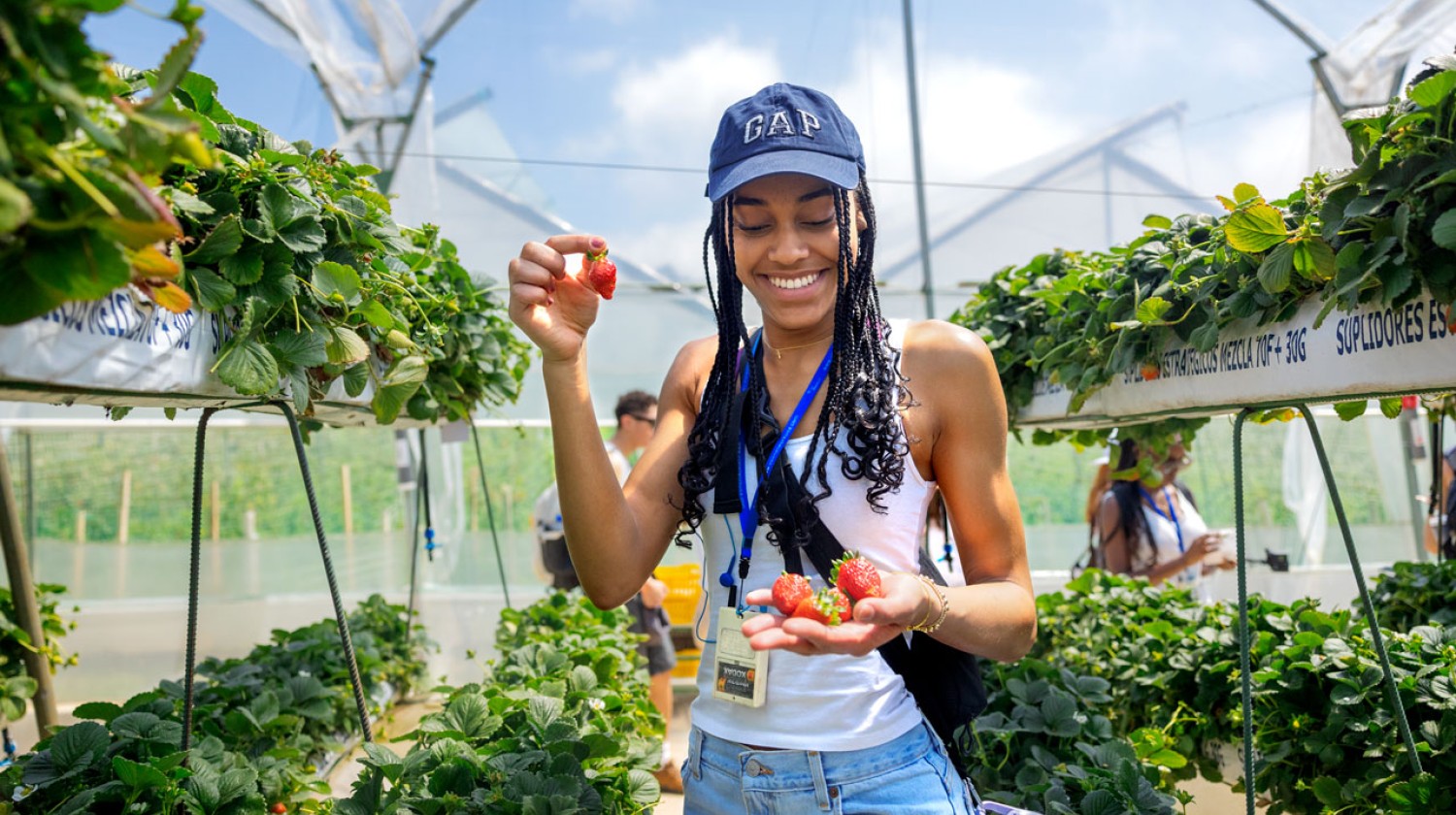
Sophia Ukeni ’27 picks strawberries at P&E Farms in Cartago.
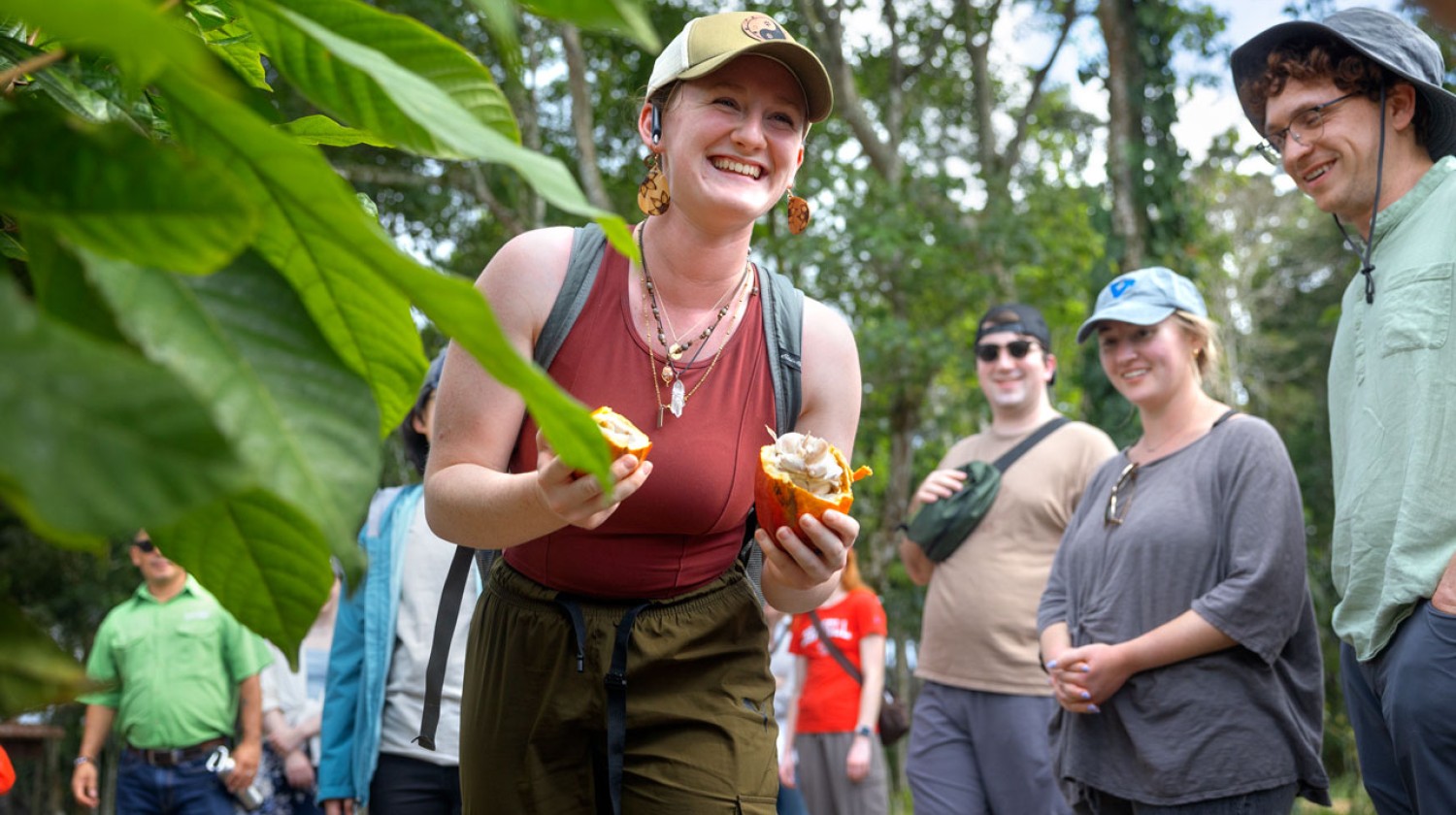
Lauren Chuhta ’26 cracks open a cacao pod at Centro Agronómico Tropical de Investigación y Enseñanza in Turrialba.
"I’ve seen the impact that these trips have on students, especially when they haven’t traveled much. They are life-changing. From the minute they step off the plane, students take in the sights, smells, sounds and it immediately influences their life-course."
Marvin Pritts, professor and director of undergraduate studies, School of Integrative Plant Science Horticulture Section, and professor in the Department of Global Development, College of Agriculture and Life Sciences.

The whole crew jumps in the back of a produce van for a quick photo op near Santa Ana.
Media Contact
Get Cornell news delivered right to your inbox.
Subscribe